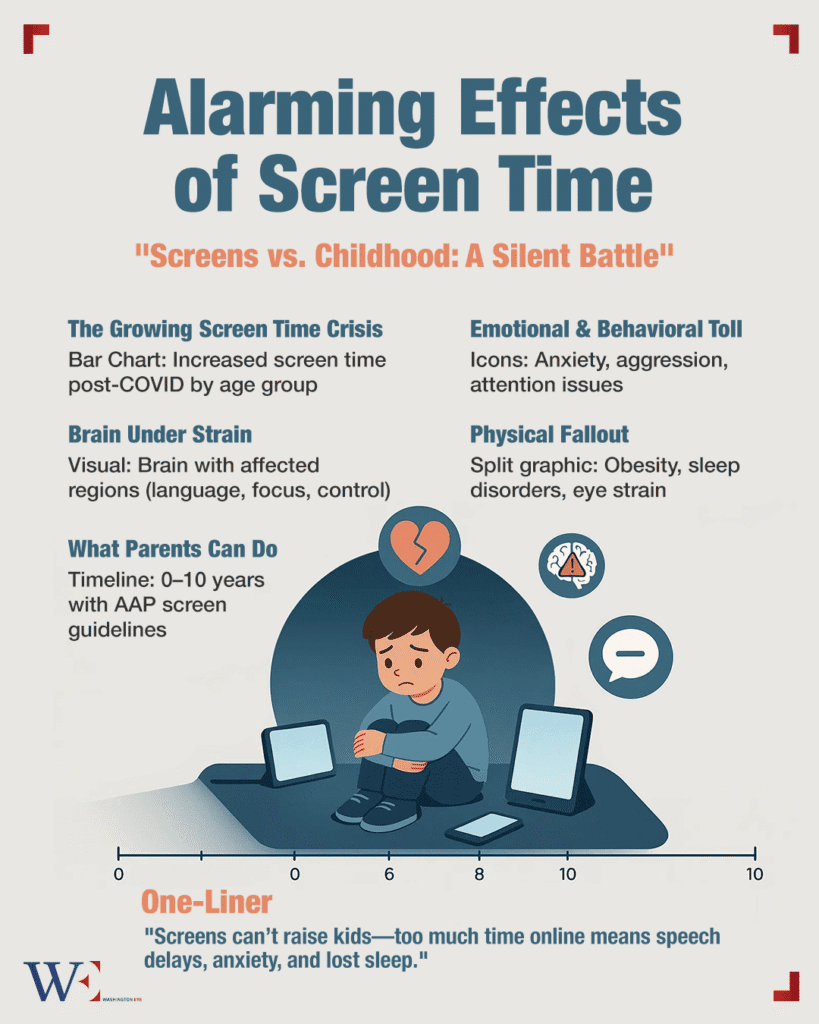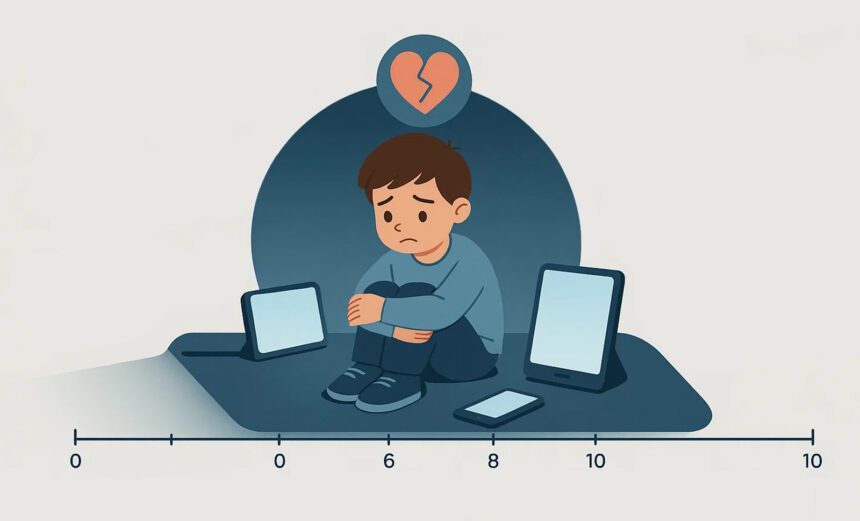In today’s digital world, screens are everywhere, TVs, tablets, smartphones, and laptops are now an integral part of childhood. While technology can offer educational benefits, a growing body of global research reveals alarming consequences of excessive screen exposure on children’s development, learning, and behavior. A large-scale analysis of over 292,000 children aged 0–10, based on 117 international studies, shows that high levels of screen time, especially video games and passive content are strongly linked to increased emotional, social, and behavioral problems such as anxiety, depression, aggression, and attention issues.
Statistics underscore the severity of this issue. Preschoolers exposed to more than two hours of screen time daily are up to 2.4 times more likely to develop learning disabilities or speech delays. Additionally, these children face a 1.76 times higher risk of conduct disorders. Screen time among children has surged by over 50% since the COVID-19 pandemic, with many toddlers introduced to screens before they turn one. According to recent surveys, nearly half of children under two already use smartphones, and teenagers often spend 4–6 hours per day staring at screens. This exposure significantly increases the likelihood of developing mental health concerns such as anxiety, depression, and poor emotional regulation.
Cognitively, excessive screen use can severely hinder brain development. Children who spend three or more hours daily watching TV or videos between the ages of 2 and 30 months are nearly three times more likely to show language delays and score lower in school readiness tests. Brain scans have revealed that prolonged screen time negatively affects white matter development, reducing connectivity between regions responsible for language, focus, and self-control. These impairments weaken children’s ability to learn, imagine, and process information. Moreover, children from homes where parents often engage in “phubbing” ignoring their children while using phones report increased feelings of neglect, sadness, and behavior issues. They are also more likely to imitate these habits and develop problematic screen dependencies.
Physically, the consequences are just as concerning. Children glued to screens for long hours often miss out on physical play, increasing their risk of obesity. Watching more than 1–2 hours of TV daily significantly contributes to unhealthy weight gain. Beyond weight, screen exposure especially before bedtime interferes with sleep patterns. Studies show that screen time can delay sleep onset, reduce total sleep time, and cause daytime fatigue and poor attention. Additionally, vision experts warn of “digital eye strain” in children, which includes blurred vision, headaches, and even tunnel vision. Overuse can reduce visual flexibility and mimic symptoms often mistaken for ADHD.
Emotionally and behaviorally, screen overuse creates a harmful cycle. Children dealing with emotional stress often turn to screens as an escape, but the result is worse emotional regulation, more distress, and deeper screen dependency. The more time they spend with screens, the harder it becomes to engage in face-to-face interactions, leading to social withdrawal, irritability, and low self-esteem. Children aged 6–10 who frequently play video games or consume violent content show stronger links to aggression and reduced empathy.
To address these concerns, health experts have issued clear guidelines. The American Academy of Pediatrics recommends no screen time for children under 18 months (other than video chats) and a limit of one hour per day of high-quality content for children aged 2–5. For older children, balance and supervision are key. It’s not just about screen time but screen quality. Interactive, educational apps used with parents can aid development, while passive or violent content without guidance is often harmful. Parents are encouraged to prioritize reading, play, and family interactions, which support cognitive and emotional growth far better than screens.
The evidence is overwhelming, excessive screen use is not just a harmless habit. It affects children’s brains, bodies, behavior, and ability to thrive in real life. While screens may seem like a helpful distraction, especially for busy families, they must be used mindfully. Limiting duration, choosing quality content, setting screen-free times (especially before bed), and ensuring plenty of real-world engagement can help children grow up healthier, happier, and better prepared for learning and life.














